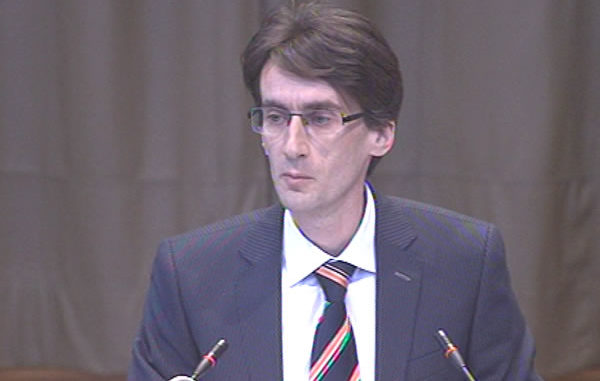
With their genocide dispute before the International Court of Justice (ICJ) in The Hague, Serbia and Croatia have not closed the door to the reconciliation of the two nations, Serbia’s agent at the court Sasa Obradovic has said.
“If Croatia really cares about what their agent said here, and that is reconciliation based on historical facts, then we can say we have given information that can be verified. Let them check if the data provided by (the documentation and information center) Veritas (concerning the victims) are correct; it would be the best way to reconcile the two peoples,” Obradovic told Tanjug.
“Serbia’s legal team has been representing Serbia with dignity from the very first day, when our lawyer Novak Lukic appeared in front of a witness from Croatia and expressed regret for all the victims,” he said.
Obradovic said that the Serbian party has shown the dignity of people who are willing to confront the past and the crimes committed.
“We were showing here that the crimes committed in eastern Slavonia were not genocide, but we did not hide the fact that these acts are crimes. We are not the type of people who celebrate crimes in Ovcara, Lovas or Skabrnja, unlike celebrations of Operation Storm in Croatia,” said the head of the Serbian legal team.
Obradovic said that Serbia urged the international community, which founded the ICJ, to “open eyes for the crimes that were committed against the Serb people in Croatia.”
In this way, Serbia has shown, perhaps better than ever over the past 20 years, that it cares about the Serbs from Croatia and their tragedy and about representing their rights in a dignified manner.
Over the past few days, he said, the Serbian legal team has received a lot of words of thanks from the Serbs from Vukovar and other Croatian cities, and from the Association of Serbian Refugees and Expellees from Croatia.
On Friday, the closing day of the presentation of oral argument before the ICJ, the Serbian legal team urged the court to reject the charges filed by Croatia claiming that Serbia committed the crime of genocide against Croats in the 1991-95 war.
Serbia proposed that the court should declare the 1995 Croatian forces’ Operation Storm a genocide against the Serbs and make Croatia pay reparations to Krajina Serbs for the crimes they have suffered, enable the refugees and displaced to return freely to their homes and stop celebrating Operation Storm as a national holiday.
The public hearings before the ICJ continues on Tuesday, April 1, when Croatia will have 90 minutes to offer its observations on Serbia’s latest claims, after which the court will conclude the oral argument, which was begun March 3.
Experts believe a final judgment, which cannot be appealed, could be rendered by the end of this or beginning of next year. It will be binding for both states.(Tanjug)



